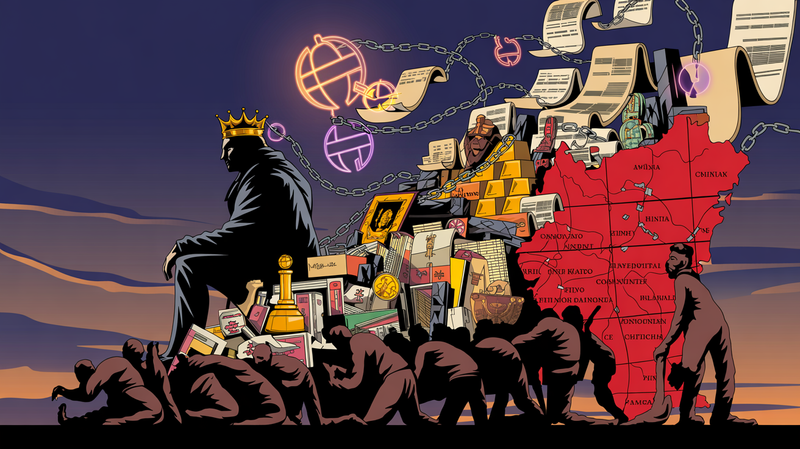A Complex World: Perspectives from Prof. Glenn Diesen on the Ukrainian Conflict and the Shift to Multipolarity
In an insightful discussion with Prof. Glenn Diesen, a renowned Norwegian political scientist and expert in international relations, critical insights emerge regarding the current state of the Ukrainian conflict and the broader implications for global geopolitics. Diesen's analysis, deeply rooted in the understanding of geopolitical dynamics, sheds light

In an insightful discussion with Prof. Glenn Diesen, a renowned Norwegian political scientist and expert in international relations, critical insights emerge regarding the current state of the Ukrainian conflict and the broader implications for global geopolitics. Diesen's analysis, deeply rooted in the understanding of geopolitical dynamics, sheds light on the evolving nature of international conflicts, the role of propaganda, and the transition from a unipolar to a multipolar world order.
Ukraine Conflict: A Tipping Point Reached
Prof. Diesen opines that the Ukrainian conflict, often misinterpreted through the lens of territorial gains, is fundamentally a war of attrition. The Western obsession with territorial control, exemplified by the United States urging Ukraine to launch a counter-offensive, has led to significant Ukrainian casualties with minimal territorial gains. Diesen argues that such a conflict inevitably results in one side occupying the positions of the weakened opponent. This pattern is evident in the war's progression, with NATO arming Ukraine and the catastrophic counter-offensive leading to substantial losses in personnel and equipment.
Diesen highlights a critical shift in the conflict's dynamics: the dwindling resources and ammunition of Ukraine, despite NATO's support. The situation has reached a point where even President Biden acknowledges the limits to further support. In contrast, Russia has maintained its mobilization capabilities, with increasing military production surpassing NATO's industrial capacities and expanding its armed forces. Diesen foresees Russia's eventual victory as inevitable, necessitating negotiations for a viable resolution for Ukraine, despite the heavy toll on its population.
The West's Dilemma and Shift in Support Dynamics
The internal political strife in Ukraine, with conflicts emerging between President Zelensky, General Zaluzhny, and Kiev's Mayor Vitali Klitschko, reflects the complexity of the situation. This internal discord aligns with a broader shift in the West's approach to the conflict. The U.S. Senate's suspension of financial aid, including over $60 billion for the Kiev regime, contrasts with the European Commission's continued support. This change signals a potential shift in the center of gravity of Western support from America to Europe. However, Diesen doubts Europe's capability to sustain this support without full American backing, considering the differing opinions within the European Union itself.
Global Proxy Wars and the Future of American Engagement
Discussing the future of American foreign policy, Diesen expresses skepticism about a significant change in approach, irrespective of the administration in power. Both major U.S. political parties, he notes, share a militaristic stance and the belief in America's role as a singular global power. While Democrats prioritize conflict with Russia, Republicans focus more on China. Diesen sees global conflicts expanding as part of the U.S. strategy to maintain a unipolar world order, despite the world moving towards multipolarity, exemplified by China's rise as a technological and economic superpower.
The Shift to Multipolarity and its Challenges
Diesen argues that the world is witnessing a shift from a unipolar to a multipolar order, fundamentally driven by economic dynamics. This transition is evident in China's technological advancements, the Belt and Road Initiative, and the development of independent financial systems. Russia is similarly diversifying its economic and strategic capabilities. However, the transition to a multipolar world is complex, with the West still clinging to a unipolar mindset, intervening in other nations under the guise of defending democracy and human rights.
In conclusion, Prof. Diesen's dialogue with Konrad Rękas offers a profound analysis of the Ukrainian conflict and its global ramifications. It underscores the complexities of international politics and the challenges in transitioning to a multipolar world, highlighting the urgent need for nuanced understanding and diplomacy in resolving these intricate global issues.




